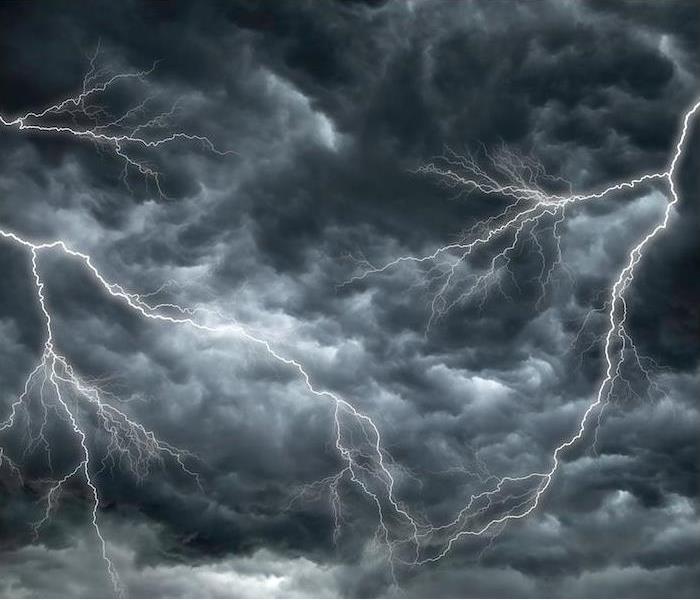What to Know About Lightning and Thunderstorms | SERVPRO® of Gwinnett County South
9/24/2019 (Permalink)
 Storm and lighting damage require specialized restoration techniques and equipment. When a storm hits your home, you need the company with experience
Storm and lighting damage require specialized restoration techniques and equipment. When a storm hits your home, you need the company with experience
The damage from thunderstorms is not always limited to high winds and flooding. Because of the nature of thunderstorms, even those without rain have the potential for lightning strikes, which can be dangerous or deadly.
Storms always carry an electrical charge, meaning there is always a chance they will produce lightning. Lightning bolts are dangerous to humans and objects in their path, as a lightning bolt can reach 500,000 degrees. Knowing the basics of lightning and the hazards it can cause is key to staying safe.
We’ve discussed that all thunderstorms carry an electrical charge, and a lightning bolt is just a physical manifestation of this electricity, which can strike the ground or across the clouds.
If the lightning does head toward the ground, it will typically seek an object to strike as the air is a poor conductor. If this object happens to be a building, it will make use of the water pipes and electrical wiring to travel toward the ground.
It is always important to seek shelter if there is lightning imminent. Though the [damages that lightning can cause to a home] are frightening, they are much less dangerous than the damage lightning can cause to a human. If lightning strikes a home it can…
…start fires. Lightning poses a high risk of fire when it strikes a building because it reaches such high temperatures. It can ignite building materials on impact, in addition to causing damage to electrical wiring, which can start a fire later on.
…damage appliances. As lightning routes itself through a home’s electrical wiring, it can transfer its charge along the way. Any electrical appliance not connected to a surge protector is at risk if lightning strikes the home.
…send shockwaves through the home. Shock waves in the clouds are known as thunder, but shock waves on the ground can cause serious damage. These waves travel with lightning and can shatter glass, explode brick and damage a home’s structure with their force.
If your home has been affected by storm damages or lightning-related fires, give us a call today! We are experts in damage cleanup and can restore your damage quickly.


 24/7 Emergency Service
24/7 Emergency Service